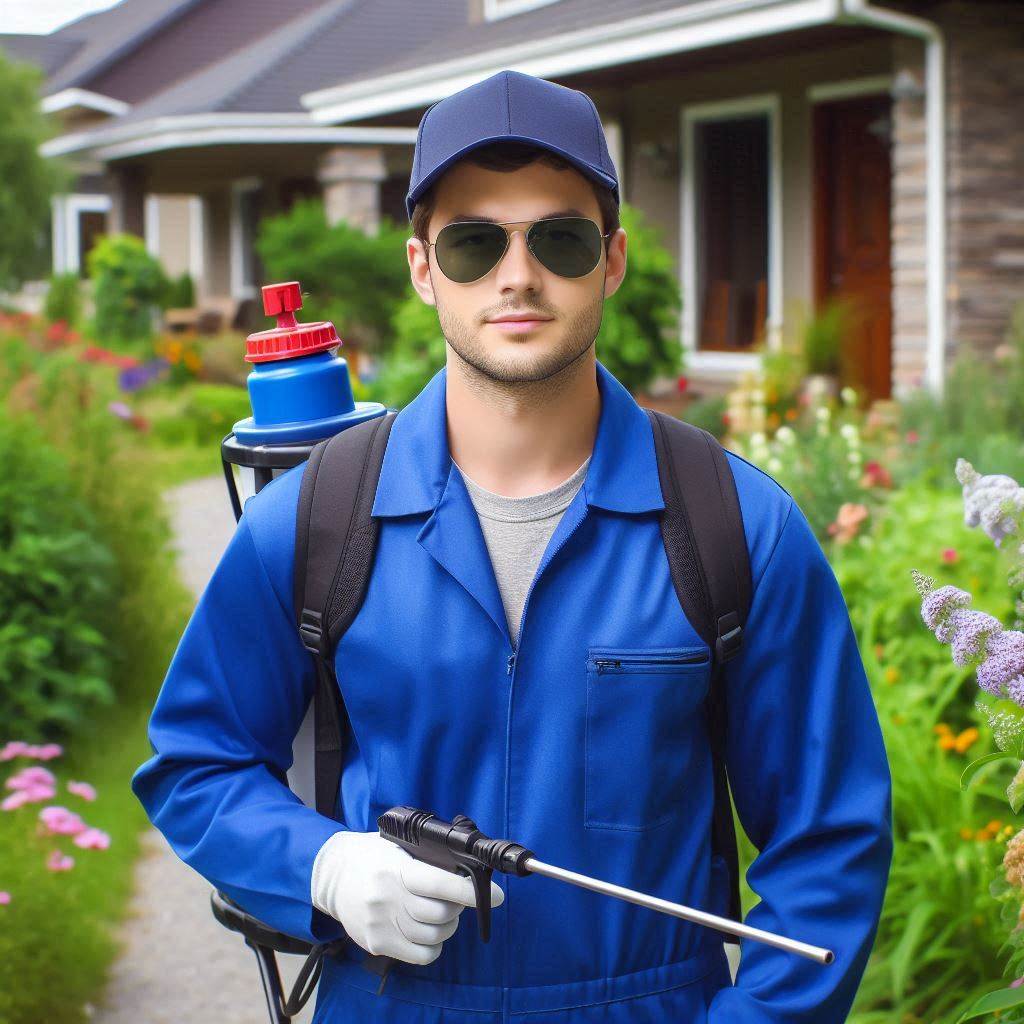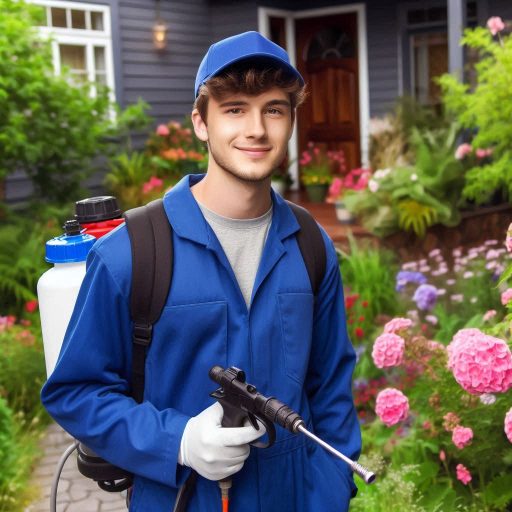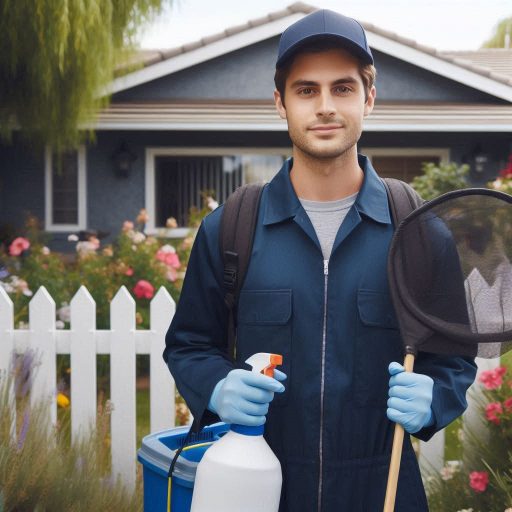Introduction
The pest control service industry plays a critical role in maintaining healthy, safe, and pest-free environments in homes, businesses, and public spaces.
As pests can cause significant damage and pose serious health risks, professional pest control services are essential for protecting properties and the well-being of those who live or work in them.
This industry, which has evolved significantly over the years, involves the management, control, and prevention of a wide range of pests, using a variety of methods tailored to specific pest problems.
The importance of pest control in maintaining safe and healthy environments cannot be overstated.
Pests such as rodents, insects, and termites not only cause physical damage to buildings and property but also present significant health risks.
For example, rodents and cockroaches can spread dangerous pathogens and bacteria, contributing to the spread of diseases like salmonella, hantavirus, and leptospirosis.
Similarly, mosquitoes, which are often targeted by pest control professionals, can transmit diseases like malaria, Zika, and West Nile virus.
Therefore, timely and effective pest management is crucial in preventing the potential health hazards posed by infestations.
Emerging technologies in pest control
Introduction of New Tools and Equipment for More Efficient Pest Management
Emerging tools and equipment are revolutionizing the pest control industry by making pest management more efficient and targeted.
Advanced equipment allows pest control professionals to address infestations with precision, minimizing damage to the surrounding environment and reducing the amount of pesticides used.
These new tools help technicians focus on specific problem areas, which improves their effectiveness and reduces the need for follow-up treatments.
For example, innovations like heat treatments and ultrasonic devices target specific pests without relying on traditional chemicals.
This shift toward advanced technology ensures safer and more eco-friendly pest management solutions.
Use of Drones for Surveying and Monitoring Pest Populations
Drones are quickly becoming a valuable tool for surveying and monitoring pest populations across vast areas.
With drones, pest control professionals can conduct large-scale inspections from the air, offering a faster, more accurate way to gather data on pest activities.
Drones are particularly useful in agricultural settings, where they can monitor crop fields for early signs of pest infestations.
By capturing aerial imagery, drones help technicians pinpoint problem areas that may be hard to detect from the ground.
This allows for quicker identification of infestations and more targeted treatments, ultimately saving time and resources.
Implementation of Smart Traps and Sensors for Early Detection of Infestations
Smart traps and sensors are game-changers in early pest detection, helping prevent small infestations from turning into larger problems.
These devices use advanced technology to monitor pest activity in real time, providing valuable data to pest control professionals.
Smart traps can be equipped with cameras and sensors that automatically alert technicians when pests are detected, allowing for a quick response.
This proactive approach significantly reduces the need for widespread pesticide applications, making pest control more environmentally sustainable.
Sensors can also track pest movement and behavior, helping professionals identify trends and patterns that inform future prevention strategies.
By detecting infestations early, businesses and homeowners can address pest issues before they cause serious damage, saving both time and money.
Read: Best Pet Grooming Schools in the United States
Sustainable and eco-friendly practices
Shift Towards Using Organic and Natural Pest Control Methods
The pest control industry is increasingly moving toward organic and natural methods to manage pests.
These eco-friendly alternatives aim to reduce harmful chemical usage, providing safer options for homes, businesses, and the environment.
Organic solutions include biological agents like beneficial insects that prey on pests, as well as plant-based repellents.
These methods offer effective pest control without introducing toxic substances into ecosystems.
As consumers become more conscious of health and environmental impacts, demand for organic pest control solutions continues to rise.
This shift supports both public health and sustainable practices in the industry.
Focus on Reducing Environmental Impact of Pesticides
With growing concerns over pesticide pollution, the industry is focusing on minimizing the environmental impact of chemical treatments.
Pest control companies are working to reduce their reliance on synthetic pesticides, which can contaminate soil, water, and non-target species.
New approaches include the use of biodegradable products and precision-targeting tools that reduce chemical drift.
Additionally, many companies are adopting safer pesticide formulations that break down more quickly in the environment, lowering the risk of long-term contamination.
This focus on reducing environmental harm aligns with global efforts to promote sustainability in agriculture and urban pest management.
Adoption of Integrated Pest Management Strategies to Minimize Chemical Use
Integrated Pest Management (IPM) has become a cornerstone of eco-friendly pest control practices.
This approach combines multiple strategies, such as biological controls, habitat modification, and targeted chemical use, to effectively manage pest populations while minimizing environmental damage.
IPM emphasizes prevention and long-term solutions, relying on non-chemical methods as a first line of defense.
When chemicals are necessary, they are used sparingly and only as a last resort.
By adopting IPM, pest control companies can reduce the overall use of pesticides, protecting both the environment and human health.
This comprehensive, sustainable approach is rapidly gaining popularity in the industry.
Read: How Much Do Pet Groomers Earn in the USA?
Increased demand for residential pest control services
Growing Awareness Among Homeowners About the Importance of Pest Prevention
Homeowners are becoming increasingly aware of the importance of proactive pest prevention measures.
This growing understanding stems from concerns about the health risks posed by pests, such as allergies and diseases, as well as the potential damage to homes caused by infestations.
As a result, more people are seeking professional pest control services to keep their homes pest-free year-round.
Regular inspections and preventive treatments are becoming common requests, as homeowners prioritize safeguarding their properties from future infestations.
This heightened awareness is driving demand for reliable residential pest control services.
Rise in DIY Pest Control Products Leading to Higher Demand for Professional Services
The rise of DIY pest control products has surprisingly led to an increased demand for professional services.
While many homeowners attempt to manage pests using store-bought sprays, traps, and repellents, these solutions often provide only temporary relief or fail to address underlying problems.
As a result, homeowners frequently turn to pest control professionals for more effective, long-lasting solutions.
Professional services offer the expertise, advanced tools, and targeted treatments that DIY methods lack, ensuring comprehensive pest management.
This trend underscores the value of professional services in delivering superior results and ongoing pest prevention.
Expansion of Services to Include Home Inspections and Preventive Treatments
Pest control companies are expanding their service offerings to meet the growing demand for residential pest prevention.
In addition to traditional extermination services, many companies now provide thorough home inspections to identify potential vulnerabilities that could attract pests.
These inspections often uncover hidden issues, such as structural damage or moisture buildup, that create ideal conditions for pests.
In response, pest control professionals are offering preventive treatments to address these issues before infestations occur.
By taking a proactive approach, homeowners can avoid costly damage and keep their homes pest-free, further driving demand for comprehensive residential pest control services.
Read: Top Pet Grooming Conferences and Expos in the USA

Pest control in commercial and industrial sectors
Importance of Pest Management in Food Processing Facilities and Healthcare Institutions
Pest control plays a critical role in maintaining safety and hygiene in commercial and industrial sectors, particularly in food processing facilities and healthcare institutions.
In these environments, pests pose significant health risks, such as contamination of food products or the spread of diseases.
Strict regulations in these industries demand effective pest management to protect both employees and consumers.
Failure to control pest populations in these sectors can result in severe consequences, including regulatory fines, health hazards, and reputational damage.
Therefore, businesses prioritize pest control to ensure a clean, safe environment.
Trends Toward Proactive Pest Control Measures to Comply With Regulations
Commercial and industrial sectors are increasingly adopting proactive pest control measures to comply with stringent industry regulations.
Instead of reacting to infestations, businesses are shifting toward preventive strategies that emphasize regular monitoring, inspections, and preventive treatments.
This proactive approach not only ensures compliance with health and safety standards but also helps businesses avoid costly infestations and operational disruptions.
Many industries, including food production and healthcare, require ongoing documentation and compliance checks, making proactive pest control an essential aspect of maintaining operational licenses and certifications.
Development of Customized Pest Control Plans for Businesses to Ensure Safety and Hygiene
Businesses across commercial and industrial sectors are turning to customized pest control plans tailored to their unique needs.
These plans are designed to address the specific pest challenges of each facility, ensuring safety, hygiene, and regulatory compliance.
For instance, food processing facilities may need specialized treatments to prevent product contamination, while healthcare institutions focus on preventing the spread of disease-carrying pests.
By developing a tailored approach, pest control professionals can effectively manage pest risks in a way that aligns with the specific safety and hygiene requirements of each business.
This trend ensures long-term pest prevention while enhancing the overall health and safety of commercial environments.
Read: Educational Requirements for Childcare Workers Explained
Adoption of digital marketing and online booking
Use of Social Media and Online Platforms to Promote Pest Control Services
The adoption of digital marketing strategies is transforming how pest control companies promote their services.
Social media platforms such as Facebook, Instagram, and Twitter provide valuable channels for engaging with potential customers.
Companies can share educational content, pest control tips, and success stories to raise awareness about their services.
These platforms also allow businesses to showcase their expertise and respond directly to customer inquiries, fostering a sense of community and engagement.
By leveraging social media, pest control companies can reach a broader audience and attract new clients more effectively than ever before.
Convenience of Scheduling Appointments and Receiving Quotes Through Websites
The rise of online booking systems has made it easier for customers to schedule pest control services and receive quotes.
Many pest control companies now offer user-friendly websites that allow customers to book appointments at their convenience.
This streamlined process eliminates the need for phone calls and provides immediate confirmation of appointments.
Additionally, potential clients can often receive quotes online, allowing them to compare prices and services before making a decision.
This convenience not only enhances customer satisfaction but also increases the likelihood of securing new business.
Incorporation of Customer Reviews and Testimonials to Build Trust and Credibility
Customer reviews and testimonials play a crucial role in building trust and credibility for pest control companies in the digital age.
Positive feedback from satisfied clients serves as powerful social proof, encouraging potential customers to choose a particular service provider.
Many companies actively solicit reviews on platforms like Google, Yelp, and Facebook, showcasing their ratings prominently on their websites.
By incorporating these testimonials into their marketing strategies, pest control businesses can effectively demonstrate their reliability and quality of service.
This emphasis on customer experiences helps foster trust and can significantly influence purchasing decisions in a competitive market.
Training and certification programs for pest control professionals
Continuous Education and Skill Development in the Industry
Training and certification programs for pest control professionals are essential in promoting continuous education and skill development.
The pest control industry is constantly evolving, with new technologies and techniques emerging regularly.
To stay competitive, pest control technicians must keep their skills updated and acquire knowledge about the latest pest management strategies.
Continuous education not only enhances their expertise but also ensures they can provide effective solutions to clients.
This commitment to ongoing learning helps maintain high industry standards and improves overall service quality.
Transform Your Career Today
Unlock a personalized career strategy that drives real results. Get tailored advice and a roadmap designed just for you.
Start NowAvailability of Online Courses and Workshops for Aspiring Pest Control Technicians
The accessibility of online courses and workshops has made it easier for aspiring pest control technicians to gain the necessary skills.
These programs offer flexible learning options that accommodate different schedules, allowing students to balance education with work commitments.
Online courses cover various topics, including pest identification, integrated pest management, and safety regulations.
Additionally, many workshops provide hands-on training, ensuring that students gain practical experience in the field.
This variety of educational resources supports the growth of a well-trained workforce in the pest control industry.
Importance of Licensing and Certification to Ensure Quality Service Delivery
Licensing and certification are vital for ensuring quality service delivery in the pest control industry.
Most states and countries require pest control professionals to obtain specific licenses to operate legally.
These certifications demonstrate that technicians have met the necessary educational and training requirements, assuring clients of their competency.
Licensing also helps establish industry standards, promoting professionalism and accountability among service providers.
By prioritizing licensing and certification, pest control companies can build trust with clients and ensure they receive high-quality, reliable services.
Impact of climate change on pest control industry
Changes in Pest Behavior and Distribution Due to Warming Temperatures
Climate change significantly impacts the pest control industry by altering pest behavior and distribution patterns.
As temperatures rise, many pests are expanding their geographic range, moving into areas previously considered too cold for their survival.
This shift leads to increased pest populations in regions where they were once limited.
Furthermore, warmer temperatures can accelerate pest life cycles, resulting in more frequent and intense infestations.
Pest control professionals must adapt to these changes by updating their strategies and treatments to effectively manage emerging pest threats in new environments.
Shift Towards Preventive Measures to Mitigate Potential Pest Outbreaks
In response to the effects of climate change, the pest control industry is shifting toward preventive measures to mitigate potential outbreaks.
With pests becoming more prevalent, proactive strategies are crucial for minimizing infestations before they occur.
This includes regular inspections, habitat modifications, and the use of eco-friendly pest management techniques.
By implementing preventive measures, pest control companies can help clients avoid costly damages and health risks associated with infestations.
This shift emphasizes the importance of long-term planning and sustainable practices in an increasingly unpredictable climate.
Collaboration with Climate Scientists and Researchers to Develop Innovative Solutions
Collaboration between pest control professionals and climate scientists is becoming essential in developing innovative solutions to address climate-related challenges.
By working together, these experts can analyze data on pest populations and environmental changes, gaining insights into future pest trends.
This partnership enables the pest control industry to create more effective, research-based strategies for managing pests in a changing climate.
Additionally, collaboration can lead to the development of new technologies and tools tailored to address the unique challenges posed by climate change.
Through these efforts, the industry can enhance its resilience and better protect public health and safety.
Conclusion
The pest control service industry is undergoing significant changes, driven by several key trends that are shaping its future.
Technological advancements are at the forefront, with innovations such as smart traps, AI-powered monitoring systems, and automated pest control devices transforming how pests are detected and managed.
These technologies allow for real-time monitoring, early detection, and precise targeting, reducing the need for broad pesticide application and improving overall effectiveness.
Alongside technology, the increasing demand for eco-friendly pest control methods is another major trend.
As concerns about environmental impact grow, both businesses and consumers are seeking solutions that minimize the use of harmful chemicals.
This shift toward more sustainable practices includes the use of natural, non-toxic substances and biological controls, such as introducing beneficial predators to target specific pests.
By adopting greener alternatives, pest control companies can meet the rising demand for environmentally responsible solutions while still effectively managing pest problems.
Integrated pest management (IPM) is also gaining traction in the industry.
This approach emphasizes long-term prevention through a combination of techniques, including biological, cultural, physical, and chemical controls.
Rather than relying solely on extermination after a pest infestation occurs, IPM focuses on preventing infestations in the first place.
By taking a more holistic and proactive approach, businesses can reduce their reliance on chemical treatments, which aligns with the growing preference for environmentally conscious practices.
[E-Books for Sale]
The Big Book of 500 High-Paying Jobs in America: Unlock Your Earning Potential
$19.99 • 500 High-Paying Jobs • 330 pages
Explore 500 high-paying jobs in America and learn how to boost your career, earn more, and achieve success!
See All 500 High-Paying Jobs of this E-Book
1001 Professions Without a Degree: High-Paying American Jobs You Can Start Now
$19.99 • 1001 Professions Without a Degree • 174 pages
Discover 1001 high-paying jobs without a degree! Unlock career tips, skills, and success strategies for just $19.99!




